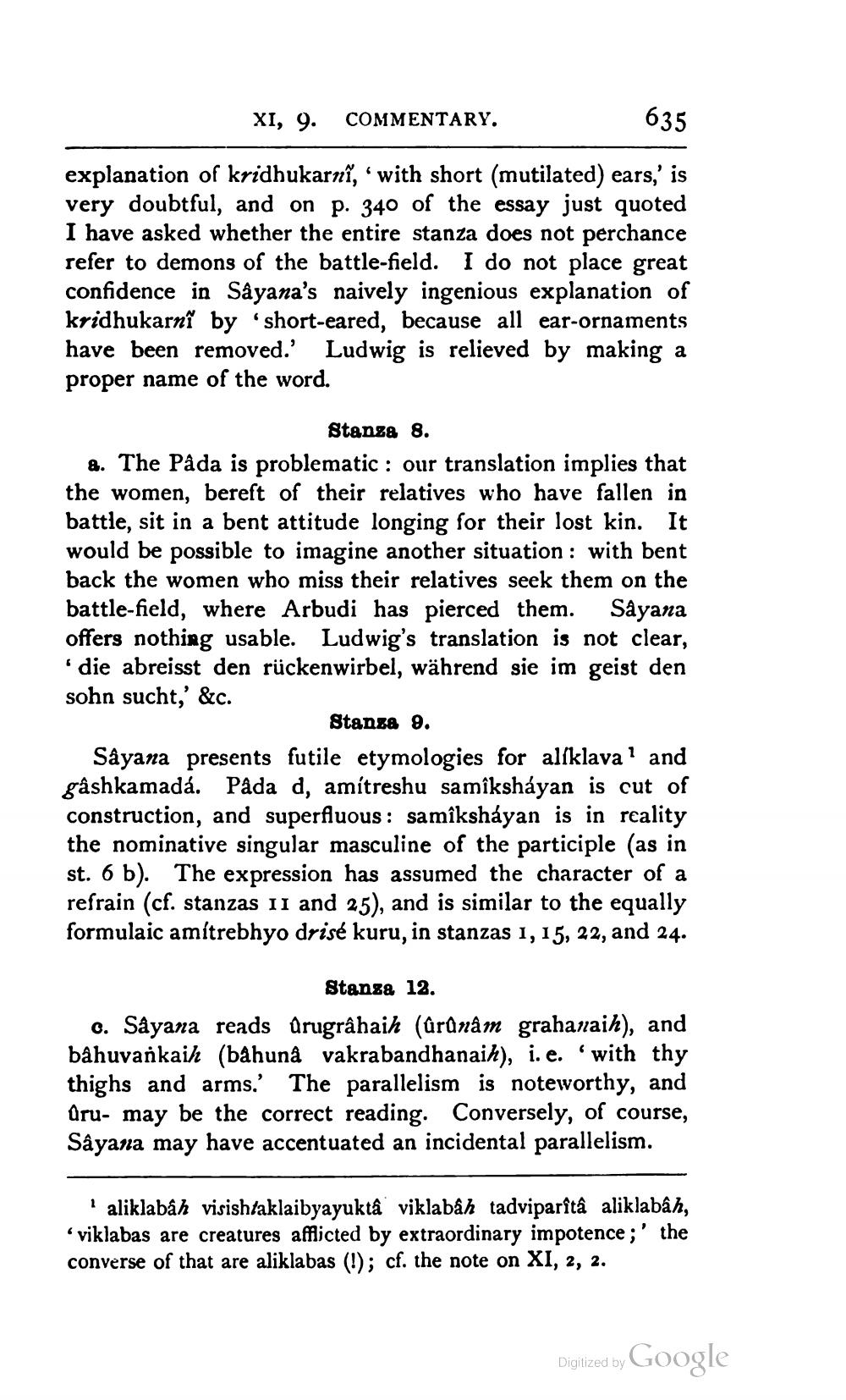________________
XI, 9. COMMENTARY.
635
explanation of kridhukarni, . with short (mutilated) ears,' is very doubtful, and on p. 340 of the essay just quoted I have asked whether the entire stanza does not perchance refer to demons of the battle-field. I do not place great confidence in Sâyana's naively ingenious explanation of kridhukarnî by short-eared, because all ear-ornaments have been removed.' Ludwig is relieved by making a proper name of the word.
Stanze 8. 8. The Pâda is problematic : our translation implies that the women, berest of their relatives who have fallen in battle, sit in a bent attitude longing for their lost kin. It would be possible to imagine another situation : with bent back the women who miss their relatives seek them on the battle-field, where Arbudi has pierced them. Sâyana offers nothing usable. Ludwig's translation is not clear,
die abreisst den rückenwirbel, während sie im geist den sohn sucht,' &c.
Stanza 9. Såyana presents futile etymologies for allklava' and gâshkamadá. Pada d, amitreshu samîkshayan is cut of construction, and superfluous: samîkshayan is in reality the nominative singular masculine of the participle (as in st. 6 b). The expression has assumed the character of a refrain (cf. stanzas 11 and 25), and is similar to the equally formulaic amítrebhyo drisé kuru, in stanzas 1, 15, 22, and 24.
Stanza 12. 0. Sâyana reads arugrâhaih (ûrûnâm grahanaih), and bâhuvankaih (bahunå vakrabandhanaih), i. e. 'with thy thighs and arms.' The parallelism is noteworthy, and Uru- may be the correct reading. Conversely, of course, Sâyana may have accentuated an incidental parallelism.
aliklabâh visishtaklaibyayukta viklabâh tadviparîtâ aliklabâh, viklabas are creatures afflicted by extraordinary impotence;' the converse of that are aliklabas (!); cf. the note on XI, 2, 2.
Digized by Google




